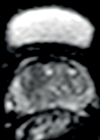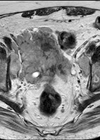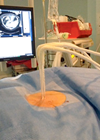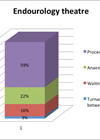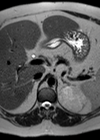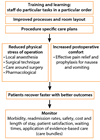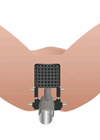Features
An MA in medical education – is it for you?
I have recently completed a three-year MA in medical education at the University of Winchester, which has been an edifying experience. The following article may appeal to readers who are considering such a venture. I have been a consultant for...
Use of MRI in the evaluation of prostate cancer: part 2
Diffusion weighted imaging and contrast enhanced imaging Introduction Magnetic resonance imaging (MRI) is widely used in localisation, staging and post-treatment follow-up of prostate cancer. In the previous issue, we discussed the usefulness of MRI in depicting prostate anatomy and pairing...
Use of MRI in the evaluation of prostate cancer: part 1
Introduction Prostate cancer remains the most commonly diagnosed cancer in males and the second leading cause of cancer related deaths in UK men, after lung cancer [1]. The incidence of prostate cancer in the UK has shown a rapid increase...
Image-guided renal cryoablation
Introduction There has undoubtedly been a dramatic increase in the number of patients diagnosed with small renal masses in recent years [1]. The rapidly expanding use of CT has led to a large number of incidental diagnoses, but increasing longevity...
Theatre utilisation in urology theatres at a UK tertiary referral centre
Introduction The efficient use of operating theatres is important to ensure optimum cost-benefit for the hospital and to clear waiting lists. The key elements in the efficient use of operating theatres are: effective management and good communication, trained staff, appropriate...
Assessment of the incidental adrenal lesion
Introduction The adrenal glands are seen on CT or MRI surrounded by fat in the peri-renal space. The right adrenal gland lies medial to the right lobe of the liver, lateral to the right crus of the diaphragm and superior...
The role of an enhanced recovery protocol in patients undergoing robotic radical cystectomy
Enhanced recovery after surgery (ERAS) protocols are patient pathways designed to reduce surgical stress and accelerate postoperative recovery. Uptake of such protocols in colorectal surgery in particular has been high, however ERAS protocols developed or utilised in urological surgery have...
Nurse practitioner TRUS biopsy: training and preparation
As prostate cancer rates increase, many urology departments rely on multi-professional teams to diagnose and manage patients with prostate cancer. The aim of this article is to highlight the skills, training and preparation required for nurse practitioners to undertake trans-rectal...
Metastatic spinal cord compression – a review
Introduction Metastatic spinal cord compression (MSCC) is an oncological emergency that, unless diagnosed early and treated appropriately, can lead to significant morbidity and mortality, including paralysis and bladder and bowel dysfunction. MSCC can be defined as spinal cord or cauda...
The role of transperineal template biopsies in the diagnosis of prostate cancer
The case In 2002, Mr A, a 64-year-old software engineer, was referred by his GP for further investigation of a raised prostate specific antigen (PSA) of 6.2. His prostate felt benign. He underwent transrectal ultrasound guided (TRUS) prostate biopsies. This...
Endoscopic management of upper tract urothelial carcinoma
Upper tract urothelial carcinoma (UTUC) is a rare disease accounting for 5-10% of all urothelial carcinomas and has an annual incidence in Western countries of 1-2 per 100,000 [1,2]. It occurs more commonly in the pelvicalyceal system as opposed to...


